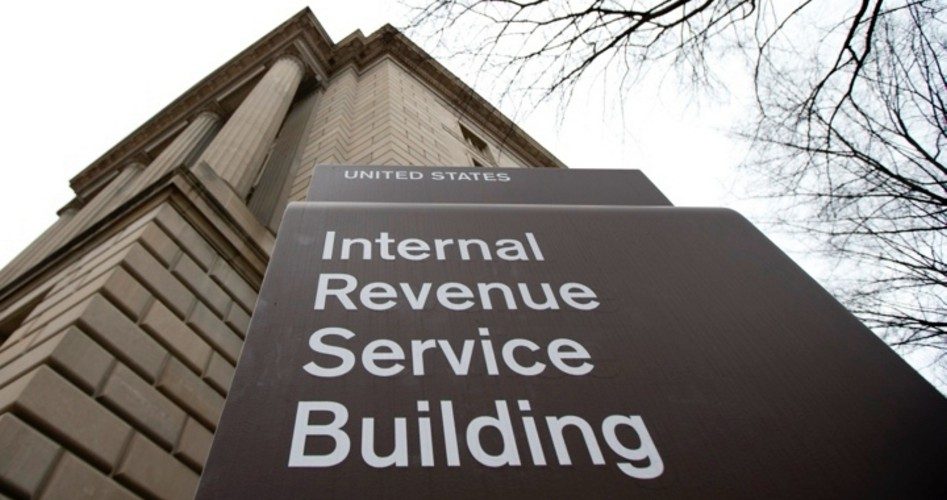
Over a nearly three-year period, the Internal Revenue Service (IRS) rehired “hundreds of former employees” who had “prior substantiated conduct or performance issues,” including failing to file their own federal tax returns, gaining unauthorized access to taxpayers’ information, and taking time off without authorization, according to a recent audit by the Treasury Inspector General for Tax Administration (TIGTA). What’s more, noted TIGTA, many of these employees went on to repeat their bad behavior after they were rehired.
TIGTA reviewed IRS hires from January 2010 to September 2013 and found that of the 7,168 former employees rehired by the agency during that period, “824 (about 11 percent) … had prior substantiated employment issues.” Of these, 141 “had a prior tax issue,” including five who “were found by IRS management to have willfully not filed their tax returns.”
Another 108 of the rehired employees “had prior substantiated employment conduct issues that occurred within the last five years,” wrote TIGTA. Among those issues were such serious offenses as gaining unauthorized access to taxpayer accounts, fraud, falsification of documents, misuse of IRS property, unauthorized absence, workplace disruption, failure to follow instructions, and misconduct. (A footnote lists examples of misconduct: “threats, sexual harassment, unprofessional conduct, off-duty misconduct, and criminal misconduct.”)
One former employee had been fired for being absent without leave for 312 hours. His case file was marked “do not rehire” by the chief of the processing division — an instruction the IRS proceeded to ignore when he reapplied for employment at the agency.
In fact, so unconcerned with employees’ past deficiencies was the IRS that it even rehired people for exactly the same positions from which they had previously been terminated or resigned, some within just 15 months of when their performance issues had been identified.
To no one’s great surprise, rehiring employees who had previously demonstrated their unfitness for the job resulted in more bad behavior. Nearly 20 percent of the rehires with previous issues “had new conduct or performance issues, such as tax noncompliance, attempted unauthorized access to tax account information, and leave abuse, while others had new legal or off-duty issues, such as bankruptcy,” TIGTA reported.
While the IRS had technically done nothing wrong in rehiring the former employees — indeed, it had followed certain federal guidelines to a T — TIGTA pointed out that “the time spent by IRS managers addressing performance and conduct issues is time taken away from serving taxpayers and enforcing the tax law. Moreover, for those employees with conduct issues related to taxpayers (such as unauthorized access to taxpayers’ accounts), the IRS has put taxpayers at increased risk.”
Just the same, one would think that ex-employees’ past conduct at the same agency should be taken into account when making hiring decisions. The IRS, however, said it was unsure of whether it is allowed to do so under existing federal regulations. TIGTA recommended that the agency work with General Legal Services (GLS) and the Office of Personnel Management (OPM) to determine whether considering former employees’ past performance is permissible.
In its response to the report, “the IRS brushed aside the inspector general’s concerns over its hiring practices,” observed The Hill. The agency said its own review “determined its current process is more than adquate [sic] to mitigate any risks to American taxpayers, federal agencies, and its employees.” It also claimed to have already consulted GLS and OPM and, finding no need to change its hiring practices, “considers this recommendation fully implemented and closed.”
TIGTA remained unimpressed, noting that though “the IRS stated that it completely revamped its process in 2012,” many of the rehires of employees with previous conduct and performance issues took place in 2012 and 2013. Thus, concluded TIGTA, “we continue to believe that the IRS needs to reassess its current processes to more fully consider prior conduct and performance issues before rehiring employees.”
The IRS’ response to TIGTA’s findings did the agency — already in hot water because of its treatment of conservative organizations , its lavish spending on conferences (including at least $60,000 on two training videos), and its paying over 200 employees to work full time for labor unions — no favors. Further tarnishing the IRS’ image is the fact that, as Senate Finance Committee chairman Orrin Hatch (R-Utah) pointed out in a February 3 hearing on IRS operations, the agency not only rehired employees with prior conduct issues but also awarded $2.8 million in bonuses to current employees with conduct issues, including tax delinquency, from 2010 to 2012. Meanwhile, complaining of relatively minor budget cuts, the IRS threatens to make its poor taxpayer service even worse.
“As if asking for a budget increase while still awarding bonuses to IRS employees that owe back taxes wasn’t rich enough, today we learn the IRS spent federal funds to rehire those with known, and often serious, employment problems,” Hatch said in a February 5 statement. “IRS employees must be held to high standards to ensure that taxpayers are protected, and there is no reason to hire employees who have already failed to uphold those expectations. Sadly, such double standards often fall on the backs of hard-working taxpayers.”
Hatch is correct, but it’s also clear that after decades of trying to bring the IRS to heel, the agency cannot be reformed. Like all other government agencies, it has no incentive to spend money wisely or to treat well the people it ostensibly serves. Considering that its very mission is to rob Americans of their hard-earned income, one could hardly expect the IRS to be a model of rectitude; and the agency has lived up to such expectations, serving since its inception as a persecutor of political enemies and a squanderer of taxpayer dollars. The solution to its abuses, therefore, is not another series of flaccid reforms but wholesale abolition of both the income tax and the agency that enforces it.
Photo: AP Images



